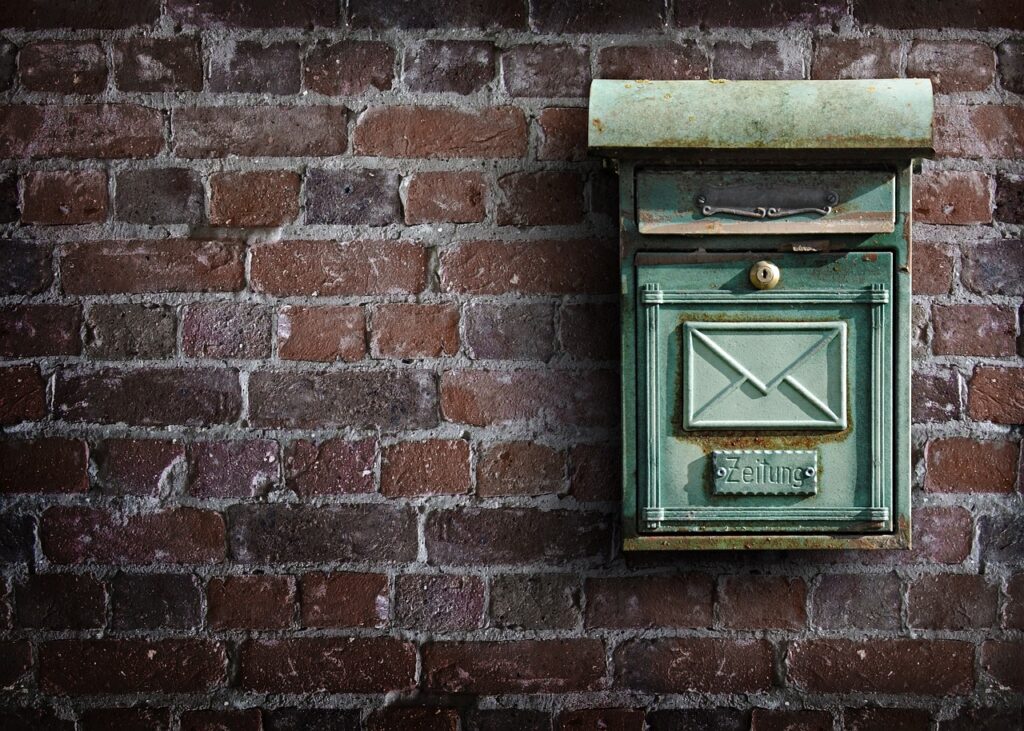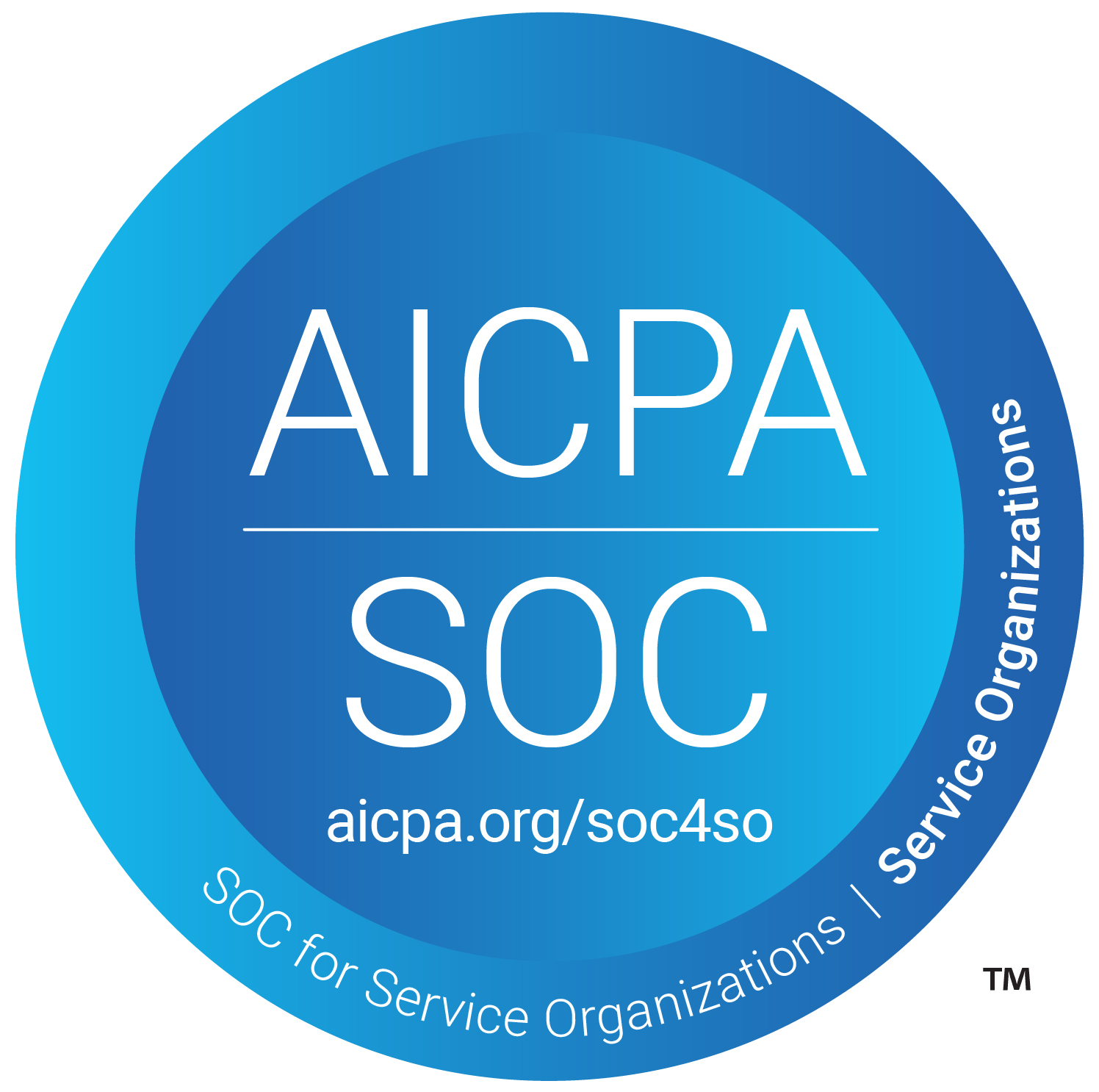Check fraud continues to evolve as criminals adopt more sophisticated methods, leveraging advanced technology to bypass traditional security measures. In 2025, fraudsters are increasingly using AI, high-resolution printers, and business email compromise (BEC) schemes to create highly realistic counterfeit checks. With digital banking on the rise, mobile deposit fraud and altered checks are also becoming more prevalent. This guide explores the most common types of check fraud, how they work, warning signs to watch for, and the best strategies for prevention.
Understanding Check Fraud
What is Check Fraud?
Check fraud is a type of financial crime that involves the unauthorized use of checks to obtain money or goods. It can take many forms, including the use of counterfeit checks, stolen checks, or doctored checks. Fraudsters may create counterfeit checks that closely mimic legitimate ones, making them difficult to detect. These fake checks can be used to withdraw money from bank accounts or make unauthorized purchases. Check fraud can be committed by individuals, businesses, or organized crime groups, and it can result in significant financial losses for financial institutions, businesses, and individuals.
How Does Check Fraud Happen?
Check fraud can occur in various ways, each method more cunning than the last. One common tactic is mail theft, where criminals steal blank checks from mailboxes or postal services. These stolen checks are then used to make unauthorized purchases or withdrawals.
Online scams are another prevalent method, where fraudsters use fake checks to trick victims into sending money. These fake checks often bear the names and addresses of legitimate financial institutions, making them look real.
Criminals also use skimmers at ATMs or point-of-sale terminals to capture account information, which is then used to create counterfeit checks.
The Battle Against Check Fraud
Check fraud isn’t just a headache for individuals—financial institutions are on high alert too. From forged signatures to completely fake checks, scammers are getting increasingly creative. A forged check? That’s when someone swipes a check and signs it without the account holder’s permission. Counterfeit checks? They’re entirely fake, created from scratch to look like the real deal. And then there’s check alteration, where fraudsters get their hands on a legitimate check but change critical details—like the payee or the amount—making it a tool for their scheme.
Common Check Fraud Scams: So Believable, It Hurts
Fraudsters are pros at making their scams sound legit. They can turn almost any story into a way to get their hands on your money, from offering work-from-home gigs to overpaying on a purchase and asking you to send back the extra cash. Even the simple “I’m stuck in a foreign country” plea with a check attached can trick people into transferring money. Fake check scams are particularly deceptive, often involving scenarios where victims are tricked into depositing counterfeit checks and sending money back to the scammer.
Then, there’s check washing. Scammers swipe checks from your mailbox or trash, use chemicals to erase the ink, and rewrite the check with their own details. Suddenly, that check to pay your electric bill is paying someone else a lot more.
Why It’s So Hard to Spot Fraud: Even Tellers Get Fooled
One of the biggest challenges for banks is how real fraudulent checks can look. Even experienced tellers can get tricked, especially when counterfeiters use advanced techniques. High turnover rates at bank teller lines make it even harder for institutions to build a team with enough experience to spot these scams.
That’s why tools like TrueChecks® are crucial. With TrueChecks®, every check gets scanned and compared against a massive fraud database, giving tellers the power to verify details and stop bad checks before they cause serious damage.
In a world where check fraud is becoming more sophisticated by the day, having the right technology on hand is essential to protect both financial institutions and their customers.
What Check Fraud Scams Should You Watch For in 2025?
Check fraud isn’t just stuck in the past—it’s evolving fast. Fraudsters are getting more creative, using new methods to trick victims into handing over their money. Below are some of the most common (and sneaky) check fraud scams, including three new ones to be on the lookout for.
Check Kiting
Definition: Check kiting is a type of financial fraud where a person takes advantage of the delay in check processing to create fake balances in their account. Essentially, they write a check from one account that doesn’t have enough money, deposit it into another account, and then quickly withdraw funds before the bank realizes the check is bad.
One real-world example involved an automobile dealer who orchestrated a multimillion-dollar check-kiting scheme by floating checks between multiple banks, creating the illusion of substantial funds. The fraud unraveled when one of the banks flagged unusually high deposits and withdrawals, leading to an investigation that exposed the fraudulent cycle (FinCEN).
How It Works:
- A fraudster writes a check from Bank A to Bank B, knowing that there are insufficient funds.
- Before the check clears, they write another check from Bank B to Bank A to cover the previous transaction.
- This cycle continues, creating an illusion of available funds.
Red Flags:
- Frequent large deposits with immediate withdrawals.
- Multiple accounts with minimal actual balances.
- Increased check deposits at the end of the business day.
Prevention Tips:
- Banks should implement real-time check verification.
- Businesses should monitor accounts for unusual check deposit patterns.
- Consumers should avoid writing checks without sufficient funds.
Overpayment Scam (Excess of Purchase Price)
This classic scam is still going strong. Here’s how it works: A buyer sends you a check for more than the agreed price, claiming it was a mistake. They ask you to refund the difference. By the time your bank discovers the check is fake—often weeks later—you’re on the hook for the full amount, including the money you sent back.
Victims of overpayment scams often suffer significant financial damage, so it’s critical to verify checks, especially if a refund is requested before the check clears. Always confirm with your bank before sending money back.
Fake Payment for Sold Goods
Imagine selling your couch or an old laptop to a buyer overseas. They send a check for the goods, but the moment you ship the item, the check bounces, leaving you empty-handed and responsible for any shipping costs. Scammers exploit the delay between check deposit and clearance, and their “buyer” identity is usually fake or untraceable.
With the rise of online banking, criminals are now opening accounts solely to commit fraud, moving quickly to cash fake checks or transfer money before the scam is detected.
The “You’ve Won!” Lottery Scam
Getting a letter saying you’ve won a prize sounds like great news—until it isn’t. In this scam, fraudsters claim you’ve won a lottery or contest and send a check to cover “taxes” or “fees.” Once you deposit the check and send the fee, the check bounces. Not only are you left with no prize, but now you owe money to the bank for the bad check.
These counterfeit checks often look real, using sophisticated printing techniques to mimic official documents, which makes them hard to spot at first glance.
The scams are getting smarter—and so should you. Here are three newer types of check fraud schemes gaining traction this year:
The Cryptocurrency Conversion Scam
Fraudsters are now leveraging the cryptocurrency craze by offering bogus “investment” opportunities. Here’s the con: You receive a check that’s supposedly your “initial earnings” from a crypto deal. The scammer tells you to deposit it and use the funds to buy more cryptocurrency, promising even higher returns. But surprise—the check bounces, and you’re left without your money or your crypto.
Remote Deposit Fraud (Mobile Banking Scam)
As mobile check deposits become more popular, so do scams involving remote deposits. In this scheme, scammers deposit a check into your account via mobile banking, often using fake names and forged IDs. They convince you to withdraw the money before the check clears, and when the bank discovers the check is fraudulent, you’re liable for the amount.
Fraudsters often target people selling items on online marketplaces, offering to pay via remote deposit but insisting on fast cash withdrawals.
Charity Donation Scam
With more people donating online and by check, fraudsters are targeting charitable individuals with fake donation requests. Scammers will send out a paper check claiming to be a refund from a charitable organization or a bonus for a past donation. The scammer asks a recipient to “re-donate” the overage by wire transfer or money order. The check eventually bounces, and the charity never existed.
Another angle: scammers may also use fake checks to deceive victims into purchasing money orders, which are very difficult to trace.
These scams tend to spike during natural disasters or times of crisis, when people are more inclined to donate and may not verify the legitimacy of the organization.
Counterfeit Checks
Definition: Counterfeit check fraud involves the creation of fake checks that closely resemble legitimate ones, often targeting businesses and individuals.
How It Works:
Fraudsters now use advanced methods to produce realistic counterfeit checks:
- High-Resolution Printing: Criminals use professional-grade printers, such as HP LaserJet or Epson EcoTank models, to replicate authentic checks with precision.
- AI-Powered Tools: In 2025, fraudsters have integrated AI-driven software to enhance their techniques, enabling them to create convincing check designs and even simulate handwriting (Experian, Troy Group).
- Business Email Compromise (BEC) Schemes: Criminals hack into company email systems to steal check images, which they then modify using AI-enhanced editing software (Prove).
- MICR Encoding & Chemical Alteration: Fraudsters use magnetic ink character recognition (MICR) printers to print authentic-looking check numbers and apply chemical washing techniques to alter genuine checks.
- Stolen Business Check Details: Using stolen check information, fraudsters replicate counterfeit versions that bypass standard security checks.
- Rapid Deposit & Cashing: Fake checks are quickly deposited or cashed before detection, often exploiting digital banking loopholes.
Red Flags:
- Checks with faded or altered logos.
- Misspelled words or discrepancies in the MICR line.
- Unusual check amounts or payee names.
Prevention Tips:
- Use watermarked or tamper-resistant checks with embedded security features.
- Verify check authenticity with the issuing bank before depositing.
- Educate employees and individuals on detecting fraudulent checks.
Check Alteration
Check alteration involves modifying a legitimate check to change critical details such as the payee, amount, or other information. Fraudsters may use chemicals to erase the original ink or white-out to cover up the original details, making it appear as though the check was issued for a different purpose. This type of fraud can result in significant financial losses for the account holder.
To prevent check alteration, individuals and businesses should regularly monitor their checking account statements for any suspicious activity and promptly report any discrepancies to their financial institution. Staying vigilant and proactive can help protect against this form of check fraud.

Forged Endorsements
Definition: A forged endorsement occurs when someone fraudulently signs another person’s name on a check to cash or deposit it.
How It Works:
- A stolen check is endorsed with a forged signature and presented for deposit or withdrawal.
- The fraudster may use fake identification to convince a bank teller.
- The legitimate check owner is unaware until they notice unauthorized transactions.
Red Flags:
- Unexpected withdrawals from personal or business accounts.
- Discrepancies in handwriting on check endorsements.
- Deposits made in unfamiliar locations.
Prevention Tips:
- Banks and financial institutions should implement strict ID verification for check cashing.Check Forgery
- Use positive pay services that require verification of payee information.
- Keep physical checks secure and monitor account statements.
Forged Checks
Check forgery occurs when someone signs another person’s name on a check without their permission, often involving the unauthorized use of an account holder’s signature. This can happen by stealing a legitimate check and forging the account holder’s signature or by creating a fake check with a forged signature.
Check forgery is a serious crime that can lead to substantial financial losses for the account holder. To prevent check forgery, it is crucial to keep checks and financial documents secure and to report any suspicious activity to your financial institution immediately. By taking these precautions, individuals and businesses can reduce the risk of becoming victims of check forgery.
Check Theft and Identity Theft
Check Theft
Check theft involves stealing checks from an individual or business and using them to commit financial crimes. Thieves may steal checks from the mail, break into homes or businesses, or use other means to obtain checks. Once they have the checks, they can use them to steal money from the account holder or commit other types of financial crimes.
To prevent check theft, it is essential to keep checks and financial documents secure and to report any suspicious activity to your financial institution.
The Postal Inspection Service plays a crucial role in preventing mail theft and check theft by investigating and prosecuting cases of mail theft and check fraud. By working together with financial institutions and law enforcement, we can help protect against check theft and safeguard our financial security.
Comprehensive Check Scam Prevention Techniques
Check fraud has evolved into a sophisticated and technologically advanced threat. Criminals no longer need complex skills or insider knowledge—just a high-quality printer and stolen personal information are enough to wreak financial havoc. As institutions ramp up efforts to combat digital fraud, traditional check fraud remains an attractive option for scammers due to its relative simplicity and the volume of checks still in circulation. The rise in mail theftcheck washing, and the use of counterfeit checks poses risks for individuals, businesses, and financial institutions alike.
With check fraud costing billions annually, it’s crucial for consumers, businesses, and financial institutions to stay proactive in implementing modern prevention strategies. Let’s take a closer look at how each group can protect themselves and their finances.
How Consumers and Account Holders Can Prevent Losses
Consumers are often the first line of defense in preventing check fraud, and being aware of common scams and modern prevention techniques is crucial. Here are some actionable tips to reduce the risk of falling victim to check fraud:
Switch to Digital Payments
Whenever possible, opt for secure electronic transfers via ACH or digital payment methods, such as Zelle, Venmo, or bank apps. Digital transactions reduce the need for paper checks, which can be intercepted and altered by fraudsters.
Use Secure Mailboxes

One of the most common methods of check fraud is mail theft. Criminals can easily steal checks from residential mailboxes or public drop boxes. To protect your checks: Use secure, locked mailboxes.
Deposit outgoing mail at the post office or in secure drop boxes, avoiding mail pickup on weekends or holidays.
Sign up for USPS’s Informed Delivery service to monitor your incoming mail and report missing checks immediately.
Monitor Your Bank Accounts
Regularly check your bank statements for any suspicious transactions. With the increase in check washing—where thieves use chemicals to alter details on stolen checks—it’s important to spot discrepancies early. Set up real-time alerts with your bank to notify you of any check activity.
Use Tamper-Proof Checks
When you must use physical checks, opt for checks with advanced security features like watermarks, microprinting, or chemical-sensitive paper. These features make it more difficult for fraudsters to alter your check.
Write Carefully
Use permanent ink when writing checks, and fill in all fields completely. This makes it harder for fraudsters to change amounts or the payee’s name.
Be Cautious with Remote Deposit Apps
While convenient, mobile banking apps are increasingly being used by scammers for remote deposit fraud. Be sure to only deposit checks from trusted sources, and verify their authenticity with your bank before accepting them.

Verifying the Account Holder’s Signature
Verifying an account holder’s signature is the absolute bare minimum when thinking about check fraud prevention but it has to be said. Financial institutions should have stringent procedures in place to compare the signature on a check with the one on file. This check signature verification process helps ensure that the check is being used with an account holder’s permission.
Account holders themselves should also be proactive in monitoring their accounts and reporting any suspicious activity immediately. This might mean watching bank accounts daily if necessary. Time consuming? Maybe, but the time it takes to recover from a fraudulent check is much worse. Advanced security features, like digital signatures and biometric authentication, can further enhance the verification process if an FI chooses to implement those types of solutions. Every year new technology grows to fight back against check fraudsters.
How Banks and Credit Unions Can Prevent Check Fraud
Financial institutions face significant risks when it comes to check fraud, but they are also well-positioned to implement cutting-edge technology and processes to mitigate these risks. Here’s how banks and credit unions can strengthen their defenses in 2024:
Implement Advanced Fraud Detection Systems
Leveraging cloud-based, real-time fraud detection software, such as , helps institutions screen each check against a comprehensive database of fraudulent activity. This early warning system allows tellers and automated systems to flag suspicious checks before they’re processed.
Use Consortium Intelligence™️, AI and Machine Learning
Fraud detection systems powered by consortiums, AI, and machine learning are the gold standard. The right check fraud technology can analyze patterns in check behavior and flag inconsistencies or unusual activity. As fraudsters get more sophisticated, predictive analytics can help identify emerging threats and stop them in their tracks.
Strengthen Employee Training
Despite advancements in technology, human judgment is still a critical element in catching fraud. Regular, updated training for bank tellers and fraud teams helps them spot red flags like poor check quality, inconsistent signatures, or unusual deposit patterns.
Adopt Dual Authentication for Wire Transfers
Many check fraud scams involve fraudulent wire transfers initiated after a fake check is deposited. Implementing dual authentication—such as confirming transactions through both phone and email—helps prevent unauthorized transfers. Advanced Fraud Solutions also provides TrueWire to safeguard wire transactions for FIs.
Real-Time Alerts and Hold Policies
Implementing real-time alert systems that notify both the institution and the account holder of large check deposits, especially from unfamiliar sources, can help prevent losses. Extending hold times for suspicious checks also provides more time to verify their authenticity.
Collaboration with Law Enforcement
Partnering with agencies like the Postal Inspection Service and the Financial Crimes Enforcement Network (FinCEN) is crucial for staying ahead of emerging fraud schemes. Sharing information and reports can help institutions better understand and counter evolving threats.
How Businesses Can Prevent Fraudulent Check Losses
Businesses are frequent targets for check fraud, especially those dealing with a high volume of checks. Fortunately, modern technology and smart financial practices can significantly reduce their risk. Here’s what businesses can do to protect themselves:
Use Positive Pay Solutions
Positive Pay is one of the most effective fraud prevention tools for businesses. This service, offered by most banks, compares checks presented for payment against a list of checks issued by the business. Any mismatch in details—such as the payee’s name or check amount—triggers a flag, allowing the business to approve or reject the transaction.
Secure Accounting Systems
Keep accounting and payroll systems secure by restricting access to authorized personnel only. Implement role-based permissions to ensure that only trusted employees can issue or approve checks.
Regular Account Reconciliation
Businesses should regularly reconcile their checking accounts, comparing issued checks with those that have cleared. Quick identification of discrepancies helps prevent losses and enables swift responses to fraud.
Digitize Payment Processes
Encouraging clients and vendors to use digital payment methods can greatly reduce the risk of check fraud. Wire transfers, ACH payments, and other digital methods are harder for fraudsters to manipulate than paper checks.
Invest in Security Features
Businesses that issue a large volume of checks should use checks with built-in security features, such as holograms, watermarks, and thermochromic ink. These features make it much harder for criminals to counterfeit or alter checks.
Monitor Employee Activity
Unfortunately, check fraud isn’t always an external threat. Implement strict internal controls to prevent employee fraud, such as requiring two signatures for checks over a certain amount or using audit logs to track who has access to financial documents.
Vendor Verification
Before issuing large payments by check, verify the legitimacy of vendors. Fraudsters may pose as suppliers and request payments to fraudulent accounts. Implement a formal process for vendor verification to reduce this risk.
The Role of Modern Technology in Check Fraud Prevention
The rise of AI, machine learning, and Consortium Intelligence™️ is transforming how we fight check fraud. Tools like TrueChecks® allow financial institutions to instantly scan and compare checks against massive databases of known fraud cases, stopping fraudulent deposits before they can be processed.
For consumers, mobile apps with real-time alerts, secure encryption, and multi-factor authentication add layers of security to check deposits. For businesses, services like Positive Pay ensure that each check is scrutinized before funds are released, reducing exposure to altered or counterfeit checks.
Staying informed and using these modern fraud prevention techniques will be critical in the ongoing battle against check fraud. By working together—consumers, financial institutions, and businesses—we can reduce the risk of fraud and protect our financial security.
Check fraud schemes are constantly evolving, with fraudsters leveraging technology to stay ahead of detection methods. As AI-driven tools, deepfake technology, and sophisticated social engineering tactics become more widespread, businesses and consumers must remain vigilant.
FAQs
What should I do if I suspect check fraud on my account?
Immediately contact your financial institution to report the suspicious activity. The sooner the issue is reported, the better your chances of recovering any lost funds.
How can I tell if a check is counterfeit?
Check for signs like poor print quality, lack of security features (such as watermarks), or mismatched bank information. Verification software can also help.
Is check washing common?
Yes, check washing is an increasingly prevalent form of check fraud, especially with mail theft. Always use secure pens and mail checks in tamper-proof envelopes.
How do scammers get access to checks?
Criminals may steal checks from mailboxes, businesses, or trash bins. They can also intercept checks during transit.
Can electronic payments prevent check fraud?
While no system is foolproof, electronic payments like ACH payments reduce the risk of check-related fraud, as they do not rely on physical documents.
What are the penalties for committing check fraud?
Penalties for check fraud can be severe, including hefty fines and imprisonment, depending on the scale of the crime.
Protecting Yourself and Your FI from Deposit Fraud
Check fraud is a serious financial crime that can result in significant losses for financial institutions, businesses, and individuals. To protect yourself and your financial institution from check fraud, it might seem like too much – too overwhelming to keep track of the scams. But today, you have to be aware of the common types of check fraud scams and to take steps to prevent them. This includes verifying account holder’s signatures, using secure mailboxes, monitoring bank accounts daily if necessary, and being cautious with remote deposit apps.
Financial institutions have to be continually assessing their advanced fraud detection systems, using consortium intelligence, and strengthening back and front office employee training to prevent check fraud.

![[2025 Refresh] Common Types Of Check Fraud And Scams](https://advancedfraudsolutions.com/wp-content/uploads/2024/11/Common-Types-of-Check-Fraud-1-880x360.png)
